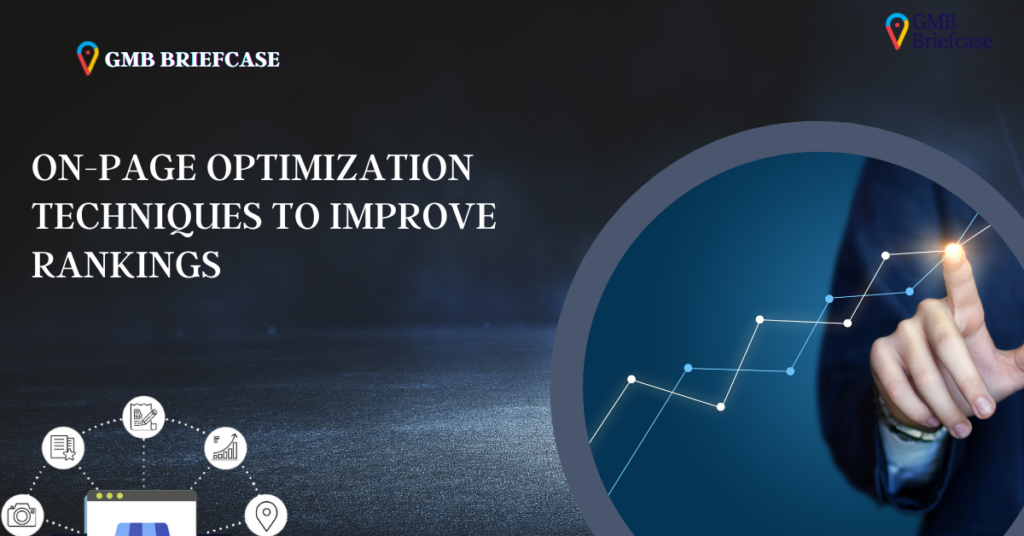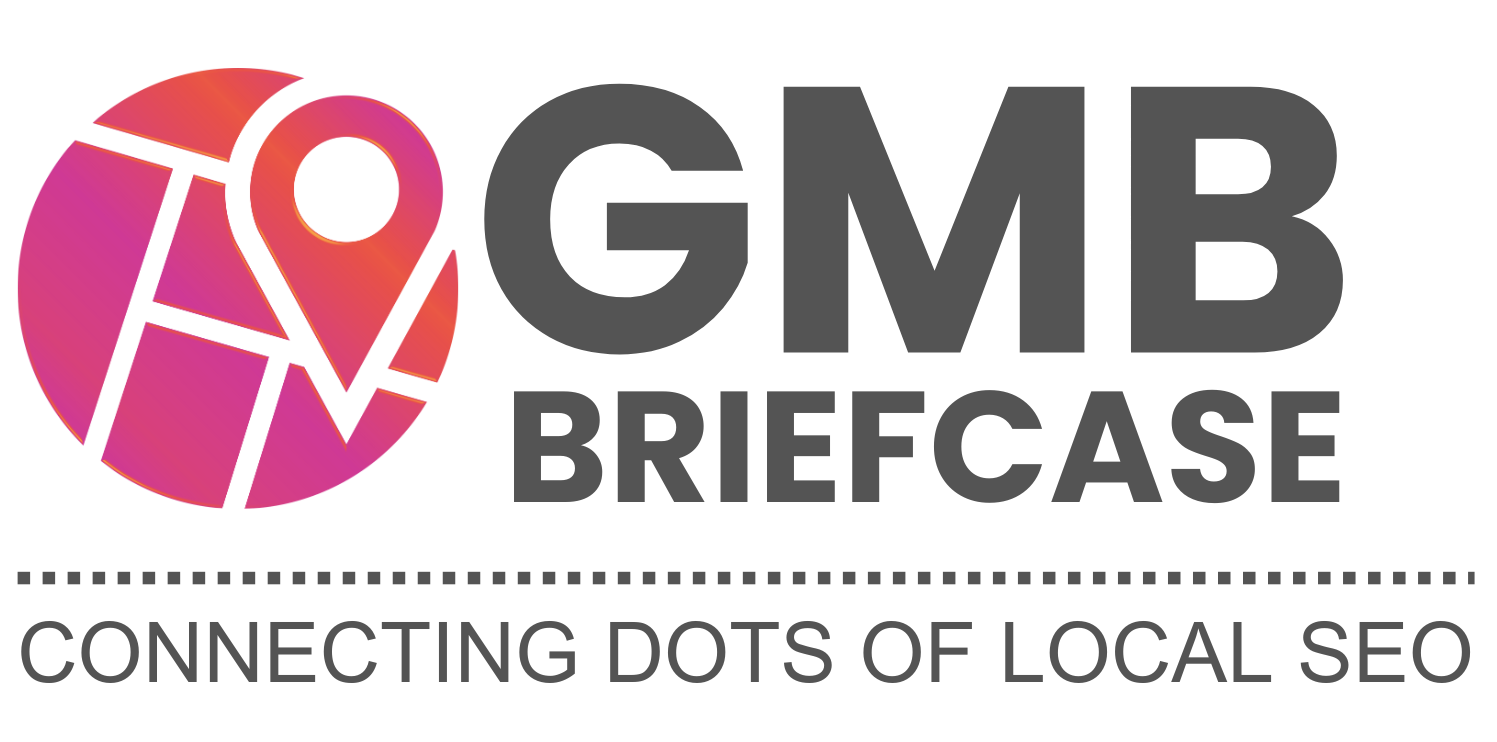
Website On-Page Optimization is one of the most effective strategies for improving rankings on Google Business Profile – SERP Pack 3 and other search engines. To achieve success in Google My Business and Local SEO, it is crucial to have an optimized website or landing page. This blog will explore On-Page Optimization in detail as outlined below:
By tweaking and optimizing features like heading tags, meta titles, descriptions, and internal links, you can significantly increase traffic and improve rankings. As the name suggests, On-Page SEO involves optimizing a website’s structure and content—everything that appears on the web page.
Moreover, Google considers On-Page SEO an essential factor when ranking web pages. A website that is not properly optimized for both search engines and users reduces your chances of getting traffic from search engines.
In this post, you’ll learn everything you need to know about On-Page SEO Optimization. Follow the techniques provided by top search engine optimization firms to implement strategies that can help your website rank higher on search engines.
What Are On-Page SEO Optimization Techniques?
On-Page SEO helps Google search bots and users understand the content and purpose of your web page. Any optimization you control and implement on your website falls under On-Page SEO.
With On-Page SEO Optimization, you enhance your website’s value to users, aiming to improve visibility and rankings in search results on Google, Bing, Yahoo, and other search engines.
On-Page SEO leads to higher rankings, increased organic traffic to your site, and ultimately more sales. Marketing mix modeling can help businesses measure the impact of SEO alongside other marketing channels, optimizing budget allocation for maximum ROI. Although the results of On-Page SEO take time, once your SEO strategy gains momentum, it can significantly boost your online rankings and sales.
Effective On-Page SEO Techniques to Boost Your Rankings
On-Page SEO is a critical ranking factor that can make or break your website’s success. Let’s dive into the practical aspects. Here are some effective On-Page SEO techniques to help you rank on the first page of search engine results:
Publish High-Quality Content
The phrase ‘Content is King’ holds true for a reason. Without high-quality content, your website will struggle to succeed, even with the best SEO efforts. Content is what attracts users to your web page, so it must meet their needs and expectations. Ensuring that the content you publish is of the highest quality is crucial for both user experience and search engine rankings.
If you create long-form content that doesn’t resonate with your target audience or doesn’t align with relevant keywords, even the most meticulous On-Page SEO optimization might not deliver the desired results.
Optimize Page Title and Meta Description
According to top search engine optimization experts, optimizing the page title and meta description is a crucial aspect of On-Page SEO. When search engines analyze your web page, they focus on these elements to understand its content and relevance. A well-optimized title and meta description that include your primary keyword can significantly enhance your click-through rates (CTR) and improve your rankings.
Pay Attention to Keyword Density
Maintaining an appropriate keyword density of around 1.5% is essential. Incorporating LSI keywords (Latent Semantic Indexing) can further help search engines grasp the context of your content. Your primary keywords should be strategically placed in the first and last paragraphs to maximize impact. However, avoid keyword stuffing, as it can degrade content quality. To refine your strategy, analyze your competitors’ websites to see how they utilize their keywords effectively.
Heading and Content Formatting
To enhance your On-Page SEO and improve user experience, ensure that your web page is well-formatted. Proper use of heading tags is crucial for highlighting sub-headings and key points. Use only one H1 tag per page to define the main topic, and structure your content with H2 and H3 tags to break down sections effectively.
Readable Content Formatting Tips:
- Highlight important points using bold, underline, calligraphic fonts, or italics to make key information stand out.
- Use a minimum font size of 14px to ensure readability across devices.
- Introduce a new paragraph after every 3-4 lines to avoid large blocks of text and enhance readability.
- Incorporate ample spacing between paragraphs to make the text visually appealing and easier to read.
By following these content formatting best practices, you’ll improve both search engine optimization and user engagement on your website.
Internal and External Linking
Having a robust linking structure is essential for effective On-Page SEO. Internal links enhance the ranking of other pages on your website by directing traffic to them, while external links to authoritative sites can also boost your search engine rankings. Ensure you link to reputable websites within your niche to maximize the benefits.
Investing in citation-building services can further improve your rankings and drive additional traffic to your site. Effective citation building helps establish your website’s credibility and relevance.
Page Loading Speed
Website speed is a critical ranking factor. Users are unlikely to stay on web pages that take longer than 3 seconds to load, making page loading speed a crucial element of On-Page SEO.
Ensure your website loads quickly to enhance customer retention and drive conversions. A fast-loading website not only improves user experience but also contributes to better search engine rankings.Part of this involves choosing a reliable hosting provider like HostNoc and Bluehost. learn more in this Bluehost review—but on-page factors like image optimization and code efficiency are key.
Mobile Friendliness
Mobile optimization is another key On-Page SEO technique. With the majority of traffic coming from mobile devices, having a mobile-responsive website is no longer optional—it’s essential.
Google factors mobile-friendliness into its ranking algorithms. Low compatibility can lead to lower rankings, so it’s important to check how your site performs on mobile devices. Ensure all elements, including calls-to-action (CTAs), are properly displayed and aligned.
Unlock Expert On-Page SEO Optimization Services for Your Website
As a leading B2B Local SEO services provider, we specialize in comprehensive On-Page SEO, Google My Business (GMB) optimization services, and our innovative GMB Briefcase SaaS tool, along with custom/white-label SaaS tools. We understand that businesses often lack the time to manage all aspects of SEO themselves, and that’s where our expertise comes in.
Our team is well-versed in effective GMB optimization strategies and citation-building services to help your website achieve top rankings on search engines. Contact us today to learn more about how our SaaS tools and Local SEO services can drive your business success.
Conclusion:
On-page SEO is vital for improving your website’s visibility and ranking on search engines. By optimizing elements such as heading tags, meta descriptions, content quality, keyword density, and internal and external links, you can significantly enhance your site’s performance. Key factors like page loading speed and mobile-friendliness also play a crucial role in retaining visitors and boosting your rankings.
For businesses seeking to excel in search engine results, effective On-Page SEO strategies are essential. Whether you need help with Google My Business optimization, citation-building, or leveraging advanced SaaS tools, professional support can make a significant difference.
Contact us today to discover how our expert services can elevate your website’s SEO and drive better results for your business.
Frequently Asked Questions (FAQs)
Q1. What is On-Page SEO and why is it important?
Ans: On-Page SEO involves optimizing elements on your web page, like titles, headings, and content, to improve search engine rankings and user experience. It’s important because it helps search engines understand your page better and increases your chances of ranking higher in search results.
Q2. How can I improve my website’s On-Page SEO?
Ans: You can improve On-Page SEO by:
- Publishing high-quality, relevant content.
- Optimizing your page title and meta description with keywords.
- Using proper heading tags and formatting.
- Creating a good internal and external linking structure.
Q3. Why is page loading speed important for On-Page SEO?
Ans: Page loading speed affects user experience. Pages that load slowly can lead to higher bounce rates and lower search engine rankings. Faster-loading pages improve user satisfaction and help boost your rankings.
Q4. How does mobile-friendliness affect On-Page SEO?
Mobile-friendliness is crucial because most users access sites on mobile devices. A site that isn’t mobile-responsive can drop in rankings. Ensuring your site works well on mobile devices is essential for maintaining high search rankings.
Q5. What are the benefits of using professional SEO services?
Ans: Professional SEO services help optimize your website effectively, improving rankings and driving more traffic. Experts use advanced techniques and tools to enhance your On-Page SEO and overall online visibility.
